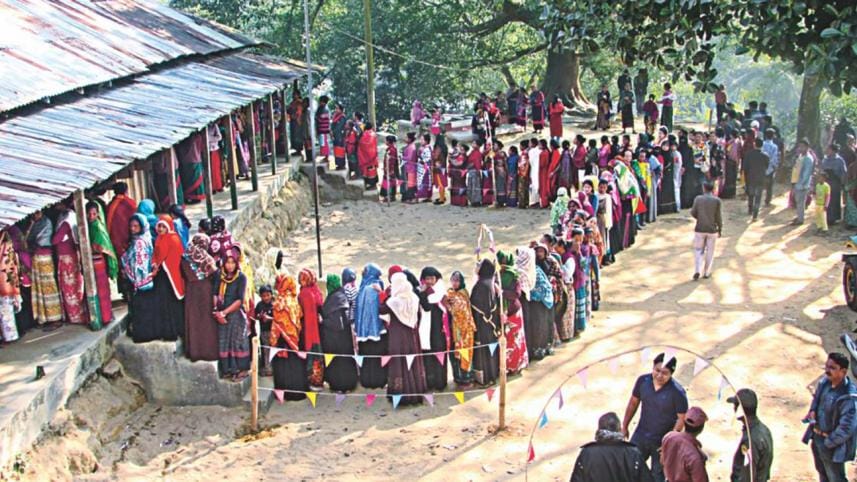Polls Violence: HRW calls for neutral probe body

The Human Rights Watch has called for an independent and impartial commission to investigate the serious allegations of abuses, including attacks on opposition party men, voter intimidation, vote rigging, and partisan behaviour of the election officials before and during the just-held national elections of Bangladesh.
“The pre-election period was characterised by violence and intimidation against the opposition, attacks on opposition campaign events, and the misuse of laws to limit free speech,” said Brad Adams, Asia director at the HRW.
“Reports of ballot stuffing, intimidation of voters, and ruling party control of voting locations on election day mean that an independent and impartial commission should be formed to determine the extent of the violations,” he added.
After a campaign marred by violence, mass arrests of the opposition, and a crackdown on free speech, the election commission announced that the ruling Awami League won the December 30 election, returning Prime Minister Sheikh Hasina to a third consecutive term, with the ruling party winning 288 of the 298 parliamentary seats contested.
The prime minister said the election was “free and fair,” while the opposition described the election as “farcical,” said the New York-based rights group that has close links with the Western governments, and significant influence in international institutions.
The HRW, in its report yesterday, said thousands of opposition supporters were arrested before the elections, and journalists described having to censor their reporting for fear of arrest and violence.
Opposition parties, journalists, and voters alleged serious irregularities, including ballot stuffing, voters being denied access to polling centres, ruling party activists occupying polling places and casting ballots instead of voters, electoral officials and the police behaving in a partisan manner, and violations of voter privacy in an atmosphere of blatant intimidation.
Opposition BNP said its polling agents were denied access in 221 constituencies. Chief Election Commissioner Nurul Huda characterised the reports of electoral violations on polling day as “stray incidents.” Police chief Javed Patwari described the atmosphere as “peaceful.”
The rights group said two journalists were accused under the draconian Digital Security Act, which criminalises peaceful speech and places undue restrictions on investigative journalism. Instead of investigating irregularities, Bangladesh authorities arrested journalists for their reporting.
Internationally recognised election monitors and foreign journalists were largely barred from the country, the report added.
Nevertheless, a BBC journalist in Chattogram captured images of what appear to be stuffed ballot boxes before the polls opened. Other media reported that in some constituencies, in defiance of the rules, polling places closed for lunch in a clear attempt to suppress turnout.
Voters in various parts of the country told the media that they had been turned away by officials or were joined in the voting booth by ruling party activists, who voted on their behalf. A large number of similar accounts by journalists and other witnesses have emerged from across Bangladesh.
“International donors, the United Nations and friends of Bangladesh should remember that elections are about the rights of voters, not those in power,” Adams said. “In a highly divided country, questions should immediately be raised when one party wins 96 percent of the seats.”



 For all latest news, follow The Daily Star's Google News channel.
For all latest news, follow The Daily Star's Google News channel.
Comments